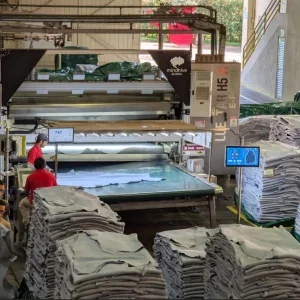The circular economy was widely discussed during the CSCB Sustainability Forum at Feevale University in Novo Hamburgo, Brazil.
Promoted by the Centre for the Brazilian Tanning Industry (CICB), the event was opened by circular economy expert Guilherme Brammer.
“We need to turn what would be garbage into an actual business," he said. "That’s what happened with the aluminum industry; cans are now immediately recycled after use, because there’s a market and value for them.”
According to Brammer, exchange platforms, the transformation of products into services and a behaviour focused on the reduction of waste, are all attitudes well-connected with this movement.
Michael Costello from Stahl talked about ZDHC (a group of 21 major global brands such as Burberry, Gap and Kering), which works towards zero chemical waste and its MRSL (list of chemical substances banned by the group until 2020).
According to him, these substances being banned is a growing trend, as well as an opportunity for companies to produce better and more efficiently. Costello says the chemical industry faces a great challenge: to offer solutions for tanneries to contemplate this new step into global production and consumption.
In addition, Fernando Bellese and Fabio Ruiz Preto covered cases of social responsibility at JBS Couros and Fuga Couros, respectively. The panel that closed the CSCB Sustainability Forum presented the vision of business executives regarding circular economy. It was moderated by José Fernando Bello (executive president of CICB) and had Edmundo Lima (executive director of ABVTEX), Gilmar Harth (president of Grupo Bom Retiro and president of the CICB Board of Directors) and Mario Spaniol (president of Carmen Steffens) as panelists.






